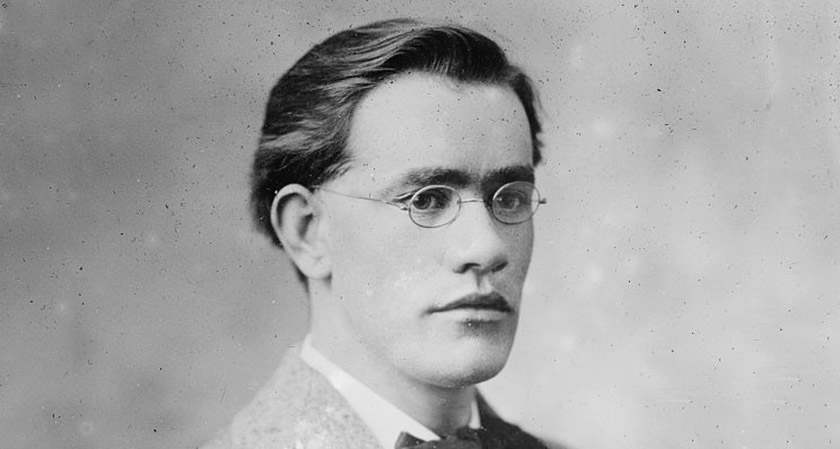SOME 35,000 soldiers from Ireland died on the battlefields of World War I and now, a century on, an Irish poet killed at Passchendaele will be remembered.
Francis Ledwidge was born Co. Meath in 1887 and was friends with leaders of the 1916 Easter Rising, which occurred just a year before his death.
The poet was held in such high regard but figures on either side of the political divide that British aristocrat Lord Dunsany helped him publish his three collection of poems.
Ledwidge continued to write poetry from the trenches including his second book Songs Of Peace.
He became known as the Poet of the Blackbird, because of his love of nature.
The Irishman enlisted with 10th Irish Division, the Royal Inniskilling Fusiliers at the outbreak of the war in 1914 and two years later found himself stationed at Ebrington Barracks in Derry.
His regiment left for the front in Belgium on Boxing Day 1916 to take part in the Third Battle of Ypres.
His last collection of poetry was published after he was killed during that battle by a shell along with five of his comrades on July 31, 1917 – 100 years ago on Monday.
A blue plaque is to be unveiled on Friday noon at Ebrington Square in Derry with Francis Ledwidge’s great nieces, Catherine Diggert and Eileen Ledwidge-Wilson in attendance.
 Ledwidge was killed by a shell on July 31, 1917 but his reputation has continued to grow (Picture: Wikimedia)
Ledwidge was killed by a shell on July 31, 1917 but his reputation has continued to grow (Picture: Wikimedia)Ulster History Circle chair Chris Spurr said the plaque to commemorate Ledwidge will be the first of five in its new partnership with Derry City and Strabane District Council.
"Throughout his life and in his work Francis Ledwidge displayed integrity towards all that he undertook, and he continues to be an inspiration to our age and into the future," he said.
Francis Ledwidge was born in Slane as the eighth of nine children, his early years marred by poverty after his father Patrick died prematurely when Francis was just five years old.
His mother Anne worked hard to keep her children in school, believing wholeheartedly in giving her children the best education they could afford.
Francis wrote poems from the age of seven and first became a published poet in his early teens.
His complete poems were published in 1919 and his reputation as a poet, and particularly as a leading war poet, has continued to grow.
An Post has issued a stamp commemorating the centenary of his death, featuring a portrait of the Irish poet and incorporates a photograph of a blackbird by nature photographer Lewis Bates.

